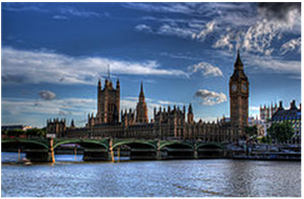By Mattanza M Fedora
In 2014, it was stated that the United Kingdom was “the most regionally imbalanced democracy in Europe”, with Scotland having the most power devolved out of all the nations in the Union, Wales having the second most, and poor, unfortunate England had nothing.
That same year, Scotland decided to remain in the UK by 55% of the vote, and since then, their support for independence has only grown in number. The reasons being that Westminster’s three main parties, Labour, Liberal Democrats and Conservatives, had vowed to devolve greater powers to them as a prerequisite of their staying. Such promises nearly nine years later have not been implemented at all. As such, it’s little wonder that Scots have reconsidered the idea of separation. What is a wonder, is how much their disdain for the British Government is frequently construed as hatred for the English people. Especially since the people of our country aren’t faring any better than our neighbours at this point in time.
I had a conversation recently with one Scot on social media – which, admittedly, is never the best way to meet people -, where I explained: “We have no Devolved Parliament, and the British Parliament – which consists of British MPs from all over the UK, who barely represent anyone in their constituencies -, have 100% control over us. and having explained to him the way that England needs her own devolved government elected by Proportional Representation, I’d hoped for a civil discourse on how to decentralise power from Westminster for all of us. Instead, my comments on how Westminster’s First Past The Post – FPTP – system means MPs from UK constituencies rarely if ever, represent the majority of their constituents were met with incredulity. Claiming: “90% of MPs are English, it is your De facto parliament. I’m all for your independence, having a devolved parliament for the dominant partner is a joke”.
This is neither true, nor helpful to either side as the British MP barely receives a third of their overall constituents’ vote share, and the Conservatives – the UK’s current ruling party – only received shy of fourteen million, in a country of fifty-seven million people. In fact, this person seemed to be proud to stick his head in the sand like an ostrich so as to hide from the truth.
Thankfully, another Scottish user commented how: “If more Scots would stop blaming the English people for Westminster’s problems, we’d be a lot closer to independence by now.”
What this highlights is that an unfortunate number of people suffer either from a critical lack of information, or are being deliberately deceptive in order to justify badmouthing their neighbours. Ultimately, this harms the nature of how Scots and Anglians should see each other’s grievances as a sign for co-operation against a government which seems hellbent on trying to maintain a hold on our people for as long and hard as they can. The people of England have no desire, nor benefit from trying to stop people of Scotland self-determining their future. The same goes for when the Scottish – whether by design or blatant indifference – tell the English that they should focus solely on independence.
But how can we be sure as to what fuels the fire of these people to think the way they do? Well, the key is simply to highlight to everyone that the necessary figures are made accessible. One of the key arguments for an English devolved parliament lies in the very nature of this conflation of ‘England’, ‘Britain’ and ‘the UK’ as synonyms. As the last place that the Westminster elite have a top-to-bottom grasp over, English matters and British matters are only further distorted than our overall size and common language already portray.
Here’s a list of questions we can use to tell if somebody is “anti-English” or “anti-Westminster”:
- Do you understand how First Past The Post elections work?
- Do you understand how the majority of British MPs don’t represent more than thirty per cent of their constituents?
- Do you understand that the layout of Scottish government elections is not the same as the Scottish map of Westminster constituencies, and how it’s elected via The D’Hondt method?
- Do you now understand why England – a nation of nearly sixty-million people – wants a PR-elected devolved parliament as you have?
Should they fail to answer any of these correctly, then we’ll know who we’re dealing with, and to steer clear of them. If, however, they answer these correctly, without offering any ifs, ands or buts, then potentially we have room to support each other in our endeavours. With the line between Anglophobia and anti-Westminster politics blurred to almost no end, it’s high time we made the distinction for the world to see. After all, the only people who’ll benefit are the ones who wish to keep the status quo.

